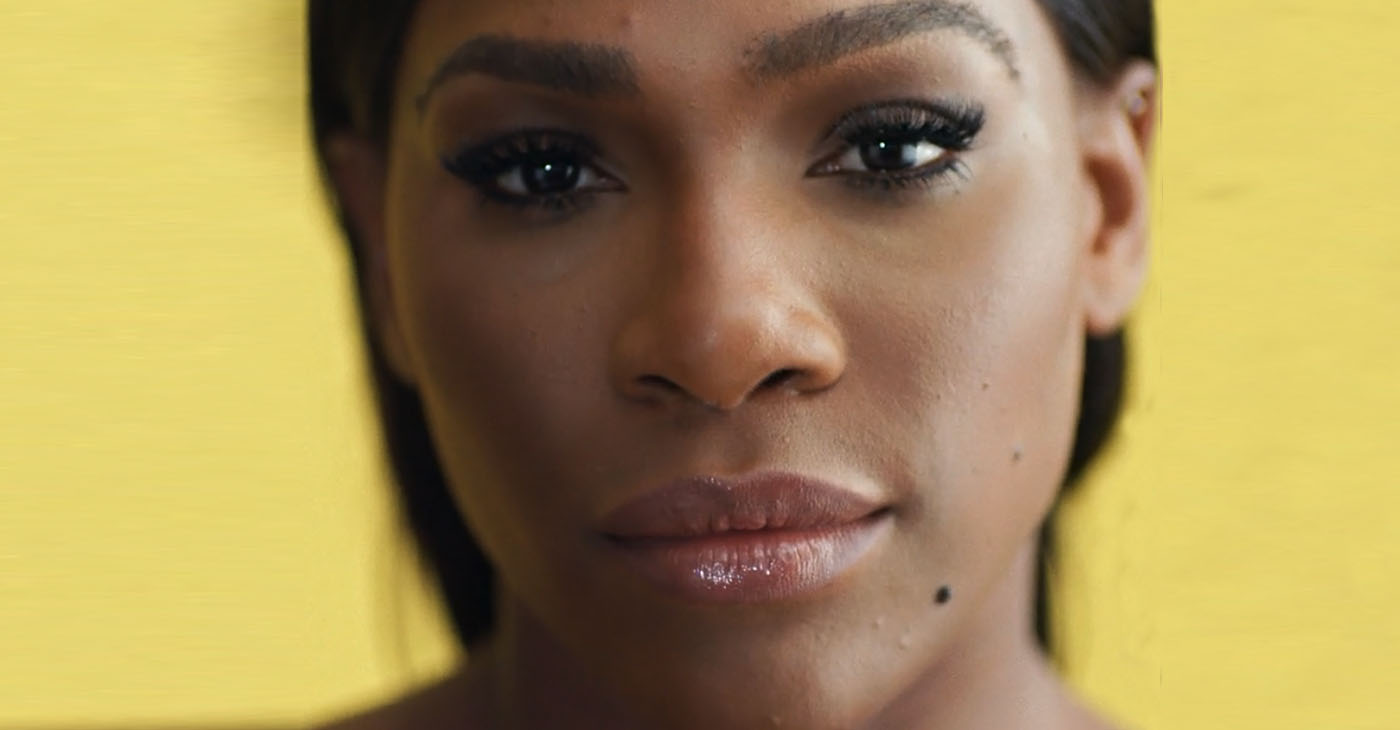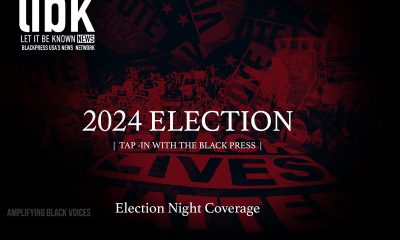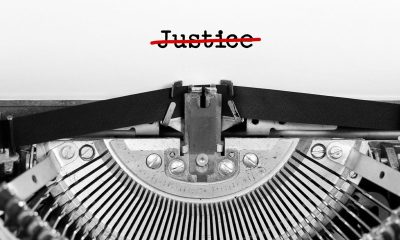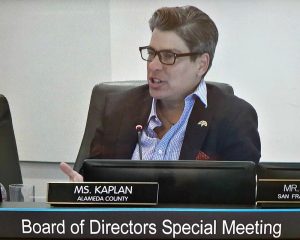#NNPA BlackPress
Serena Williams’ Message to Medical Professionals: Listen to Black Women
NNPA NEWSWIRE — According to the Centers for Disease Control and Prevention, another 50,000 women each year have unexpected labor and delivery outcomes with serious short- or long-term health consequences. “Every pregnancy-related death is tragic, especially because two in three of them are preventable,” the CDC said as the nation observes Black Maternal Health Week through April 17.
The post Serena Williams’ Message to Medical Professionals: Listen to Black Women first appeared on BlackPressUSA.

By Stacy M. Brown, NNPA Newswire Senior National Correspondent
@StacyBrownMedia
Each year in the United States, about 700 women die during pregnancy or the year after.
According to the Centers for Disease Control and Prevention, another 50,000 women each year have unexpected labor and delivery outcomes with serious short- or long-term health consequences.
“Every pregnancy-related death is tragic, especially because two in three of them are preventable,” the CDC said as the nation observes Black Maternal Health Week through April 17.
She said she was almost one of them.
“I’ve suffered every injury imaginable, and I know my body,” Williams writes in the deeply personal essay, later adding: “Giving birth to my baby, it turned out, was a test for how loud and how often I would have to call out before I was finally heard.”
As Williams recounts, she had a “wonderful pregnancy” with her first child, Alexis Olympia, and even her epidural-free delivery was going well—at first.
“By the next morning, the contractions were coming harder and faster. With each one, my baby’s heart rate plummeted. I was scared,” the 23-time Grand Slam winner wrote.
“Every time the baby’s heart rate dropped, the nurses would come in and tell me to turn onto my side. The baby’s heart rate would go back up, and everything seemed fine. Then, I’d have another contraction, and baby’s heart rate would drop again, but I’d turn over, and the rate would go back up, and so on and so forth.”
The CDC noted significant disparities in the birthing experience of Black women in its most recent report.
The agency noted that Black women are three times more likely to die from a pregnancy-related cause than white women.
The agency said multiple factors contribute to these disparities, such as variation in quality healthcare, underlying chronic conditions, structural racism, and implicit bias.
The CDC added that social determinants of health prevent many people from racial and ethnic minority groups from having fair economic, physical, and emotional health opportunities.
After an emergency C-section, Williams gave birth to her daughter, Alexis.
Afterward, she said she had to fight for her life.
Already classified as a high risk for blood clots, Williams inquired whether she should receive heparin, a blood thinner.
“The response was, ‘Well, we don’t really know if that’s what you need to be on right now,’” Williams wrote.
“No one was really listening to what I was saying.”
Despite excruciating pain, Williams continued to speak out to her health care providers.
At one point, she felt paralyzed.
“I couldn’t move at all,” she recounted.
Aching and coughing to the point where her C-section stitches burst, Williams complained that she couldn’t breathe.
Four surgeries later, doctors discovered a blood clot in one of her arteries, a hematoma in her abdomen, and other clots.
She said the nurse she had previously spoken with told her that the medicine was making her crazy. Had she gone along with the nurse’s assertions, Williams could have died.
“Being heard and appropriately treated was the difference between life or death for me,” Williams asserted. “I know those statistics would be different if the medical establishment listened to every Black woman’s experience.”
The post Serena Williams’ Message to Medical Professionals: Listen to Black Women first appeared on BlackPressUSA.
#NNPA BlackPress
OP-ED: The Illusion of Allyship. White Women, Your Yard Signs Mean Nothing to Me
NNPA NEWSWIRE – “The blue bracelets are something White women are wearing so others can see that they didn’t vote for Trump,” says Liberal Lisa from Oklahoma on X. Chile, bye. These bracelets are hollow symbols, empty gestures that mean nothing to me. An accessory to claim distance from Trump’s legacy is superficial comfort, while the choice to not stand with us in the voting booth is far more profound.

Political yard signs can symbolize intentions and allegiance. But this year, they’ve also symbolized betrayal. During this general election, Black women were led to believe that more White women would stand with us. Exit polls, however, told a different story. Despite overwhelming displays of support, more White women still chose to vote for the convicted felon, reality TV star, and rapist. White women answered the call but left us hanging at the polls.
A Familiar Disappointment
I live in DeKalb County, Georgia, and the abundance of Harris-Walz yard signs could’ve fooled me. But I’ve seen this before, back when Stacey Abrams ran for governor. White women showed up, put up signs, attended rallies, knocked on doors, and phone-banked. Yet, when it came time to vote, they let us down—not once but twice. I’ve been here for over 15 years, and if there’s one thing I know, it’s that political signs are symbols without weight.
In every election, I’ve talked with White women. Most aren’t the primary earners in their families and vote along party lines, aligning with the preferences of their fathers and husbands. These conversations reveal a reluctance to break from tradition, even when their votes affect women and certainly when their votes impact the lives of people who look like me.
The Illusion of Solidarity—Symbols Are Not Enough
On social media, I’m seeing White women posting pictures of blue bracelets to “prove” they didn’t vote for Trump. “The blue bracelets are something White women are wearing so others can see that they didn’t vote for Trump,” says Liberal Lisa from Oklahoma on X. Chile, bye. These bracelets are hollow symbols, empty gestures that mean nothing to me. An accessory to claim distance from Trump’s legacy is superficial comfort, while the choice to not stand with us in the voting booth is far more profound.
I’ve seen Black Lives Matter signs and black squares posted on Instagram to “prove” support for Black people, but we now know that was a lie, too. Will those same people who claimed Black lives mattered now take down their Harris-Walz signs and show their true selves?
Navigating these truths is a daily struggle for me—professionally and socially. White women often misuse their privilege, supporting us only when it’s convenient. Seeing overqualified Black women sabotaged or abandoned by White women at critical moments is a constant emotional challenge. It’s exhausting to live with this reality, especially when solidarity seems like something they pick up and discard at will.
One clever campaign ad from Harris-Walz that spoke directly to White women. “Your Vote, Your Choice” emphasized that their vote was private—independent of their household situation. Another was from Olivia Howell Dreizen, the “Vote Without Fear” campaign, which empowered women to consider the greater impact of their choices. But it seems many still couldn’t choose the roadmap to freedom—even when it was handed to them.
A Call for Action Beyond Words
White women, I want to believe you care, but actions speak louder than yard signs, bracelets, or Instagram posts. Show up in our communities, advocate in your workplaces, and stand up to dismantle the structures that uphold white supremacy. Only through real action will we know where you stand.
If you choose not to act, we see you—and we know exactly where you stand. Good luck these next four years.
Disclaimer: The views and opinions expressed in this article do not necessarily reflect the official policy or position of BlackPressUSA.com or the National Newspaper Publishers Association.
#NNPA BlackPress
Supernova Parenting Conference Empowers Over 100 Parents with Resources for Neurodivergence and Mental Health
The inaugural Supernova Parenting Conference was co-hosted by Natasha Nelson, known as Supernova Momma, and Yolanda Walker, founder of Parenting Decolonized. It brought together over 100 parents, caregivers, and educators dedicated to fostering understanding and support for neurodivergent children and mental health challenges. The conference provided invaluable resources, expert insights, and a collaborative space for […]

The inaugural Supernova Parenting Conference was co-hosted by Natasha Nelson, known as Supernova Momma, and Yolanda Walker, founder of Parenting Decolonized. It brought together over 100 parents, caregivers, and educators dedicated to fostering understanding and support for neurodivergent children and mental health challenges. The conference provided invaluable resources, expert insights, and a collaborative space for connection, marking a significant step toward creating a more inclusive parenting community.
The event featured a variety of workshops, panel discussions, and keynote speeches from leading experts in neurodiversity and mental health. Attendees left with practical tools and strategies to enhance their parenting journeys, emphasizing the importance of understanding and supporting the unique needs of neurodivergent children.
“While the conference was a tremendous success, we believe that our work doesn’t end here,” said Natasha Nelson. “It’s crucial to continue providing ongoing support and resources for parents as they navigate this important journey. We want to ensure families can access the tools they need long after the conference.”
To extend the momentum generated at the conference, Natasha and Yolanda are excited to announce the launch of the Supernova Parenting Community. This membership-based initiative aims to offer a safe and supportive environment for parents and caregivers to continue their growth as conscious parents.
Membership is available for as little as $5 a month via Patreon, making it accessible for all families seeking support.
“We know that parenting can be a challenging journey, especially when navigating neurodivergence and mental health issues,” Yolanda Walker added. “Our goal is to build a community where parents feel seen, heard, and supported. We hope you’ll join us in this vital work.”
For more information about the Supernova Parenting Community and to sign up for membership, please visit supernovaparenting.org
#NNPA BlackPress
Election Night on The Yard at Howard University
Election Night on The Yard at Howard University
-

 Alameda County3 weeks ago
Alameda County3 weeks agoAlameda County District Attorney Pamela Price Announces $7.5 Million Settlement Agreement with Walmart
-

 Activism2 weeks ago
Activism2 weeks ago‘Jim Crow Was and Remains Real in Alameda County (and) It Is What We Are Challenging and Trying to Fix Every Day,’ Says D.A. Pamela Price
-

 Bay Area3 weeks ago
Bay Area3 weeks agoIn the City Attorney Race, Ryan Richardson Is Better for Oakland
-

 Activism2 weeks ago
Activism2 weeks agoOakland Post: Week of October 30 – November 5, 2024
-

 Business4 weeks ago
Business4 weeks agoHarris Promises 1 Million Forgivable Loans for Black Businesses
-

 Business4 weeks ago
Business4 weeks agoStudy Confirms California’s $20/Hour Fast Food Wage Raises Pay Without Job Losses
-

 Activism3 weeks ago
Activism3 weeks ago“Two things can be true at once.” An Afro-Latina Voter Weighs in on Identity and Politics
-

 Arts and Culture3 weeks ago
Arts and Culture3 weeks agoMacArthur Fellow Jericho Brown’s Poetry Reflects Contemporary Culture and Identity

















































